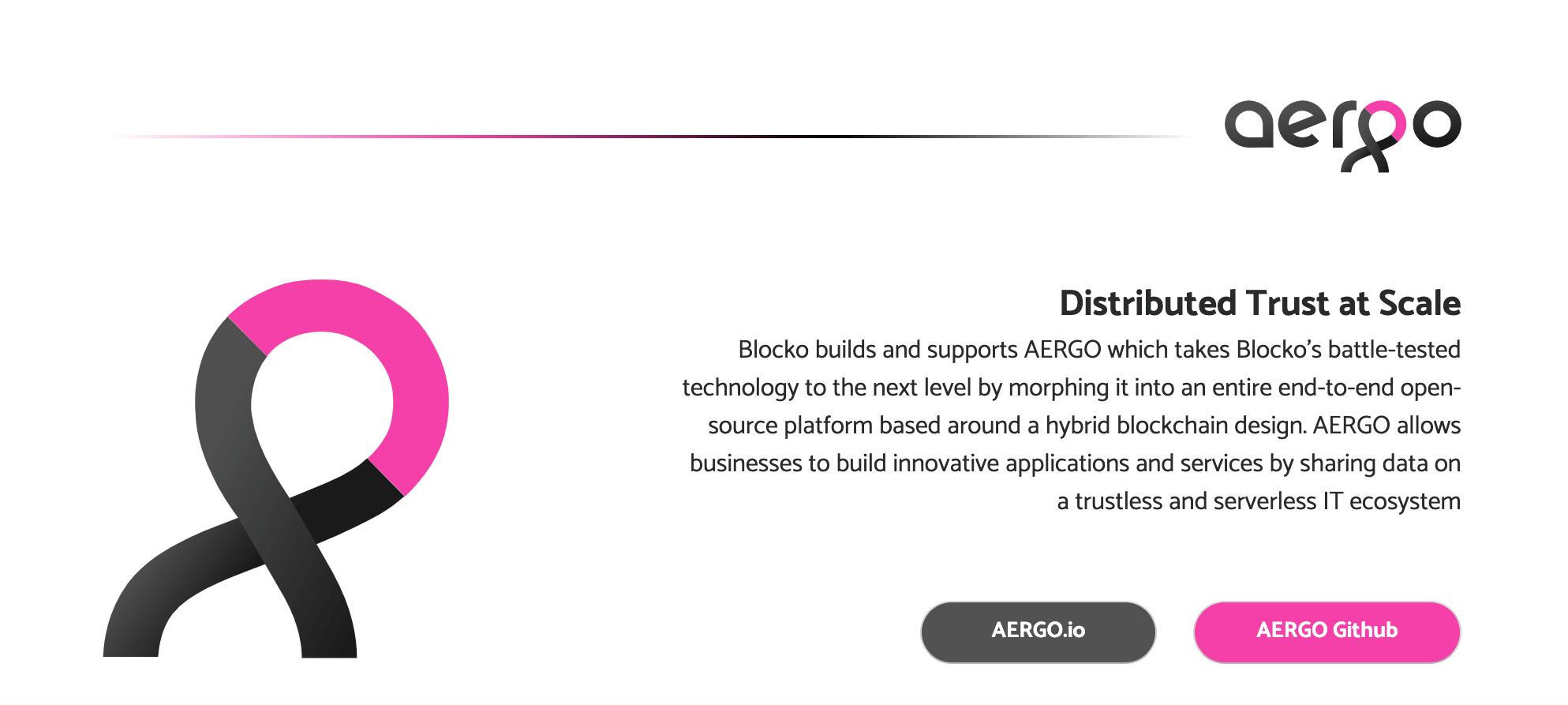
Blocko, a South Korean
startup backed by Samsung, has launched its hybrid blockchain Aergo Enterprise and
initiated a migration program for clients using its private blockchain product Coinstack,
which the company will officially be retiring, it said in a release earlier
this week.
Aergo Enterprise focuses on providing greater levels of
security, scalability and performance, and its hybrid approach allows for the
exchange of assets such as information, tokenized goods, and supply chain
registries between blockchains using Merkle Bridges, as well as increased data
integrity, the company says.
Features of Aergo Enterprise include simplified administration
with easy-to-integrate, one-click provisioning of custom blockchains as well as
simplified cloud system orchestration, easy monitoring with a dashboard,
transaction and block history, as well as resources and asset monitoring for
independent blockchains, extended node management systems for more configurations
and settings such as managing permissions and deleting data, development kits,
pre-built applications, and around-the-clock support.
Aergo Enterprise runs on the Aergo main network, an open,
permissionless system for enterprise launched
earlier this month. Non-profit organization Aergo Organization is responsible
for promoting and developing the Aergo ecosystem.
“We’ve been supporting Aergo Organization in the design and
construction of the Aergo platform for a full year. After a long and intensive
R&D process, we are excited to finally launch our largest product to date,”
said Won-Beom Kim, founder and CEO of Blocko. “Our existing customers will be
able to complete the migration program with ease and switch to our hybrid, high-performance
blockchain network setup to achieve greater levels of security and scalability,
while expanding their use cases.”
Founded in 2014, Blocko is a commercial blockchain
infrastructure provider and a leading blockchain startup in South Korea, serving
more than nine million users through various blockchain applications.
In the past five years, Blocko has built over 20-full scale
blockchain implementations on private and public blockchain ledgers for
purposes of inter-organizational communication. Some examples include a single
sign-on service for subsidiaries of the Shinhan Financial Group, an e-document
stamping system for all employees of Hyundai Motors, and other management
systems for Samsung Card to facilitate interactions with foreign entities.
In March, the company announced the implementation of a
blockchain solution it developed for land registry in South Korea. The Land
Registry Project, an initiative from the South Korean government aimed at using
blockchain to improve various public service sectors, seeks to eliminate costs
associated with document forgery and sensitive information leaks by
implementing blockchain technology.
The platform passed its initial testing phase and is planned
to move towards a full-scale implementation scheduled to take place throughout
the course of the year.
Blocko secured
US$8.9 million in its latest round of funding in June 2018 to strengthen its
presence in South Korea as well as in Europe and East Asian markets.

